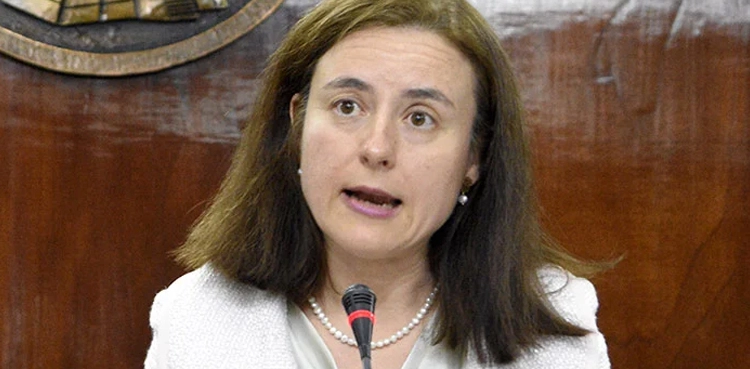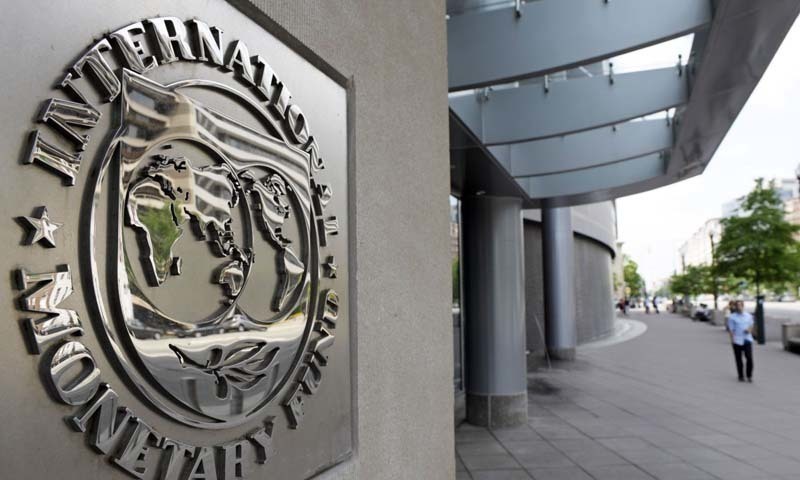IMF termed discussions with Pakistan on ninth review productive
Islamabad: Finance Minister Ishaq Dar on Tuesday announced that all matters pertaining to the ninth review of the International Monetary Fund package were completed and that payments were prepared till June.
Ishaq Dar said that Pakistan was pursuing financial help from Saudi Arabia, including doubling the current deferred oil payment facility given by the kingdom to $2.4 billion per year. He added that he had discussed things with the Saudi finance minister and that their response was positive. They said they will support us and that positive talks regarding financial help were underway with both Saudi Arabia and China.
The minister also shared that the US ban on buying discounted oil from Russia also waived.
Earlier, the IMF’s Country Representative Ester Perez has termed the discussions with the Pakistan on the ninth review productive. She said “Discussions have enabled a revision to the macroeconomic outlook post floods as well as an in-depth evaluation of fiscal, monetary, exchange rate, and energy policies adopted since the completion of the combined seventh and eighth reviews.”

The IMF Pakistan chief said that the global lender is looking forward to continuing dialogue over policies that adequately address the humanitarian and rehabilitation needs from the floods while also preserving fiscal and external sustainability given available financing.
On the other hand, sources say that Pakistan has requested the lender to allow an adjuster of Rs320 billion in the budget deficit for the current fiscal year 2022-23 as the said amount was the expenditures on flood rescue and relief.
To boost its tax collection target, the government is considering imposing a flood levy in the ongoing fiscal year and different proposals are under consideration for finalizing its exact modalities.
Although the political leadership has agreed in principle to take additional taxation measures but they want to adopt them in such a way there is no extra burden on the common man amid higher inflation and low growth trajectory.
“We are considering imposing flood levy on those in higher income brackets who are earning lofty profits in recent years. Though modalities are yet to be firmed up but it’s actively under consideration at the moment within the higher functionaries of the government,” said a government official.
The government has informed the IMF of the flood expenditures including BISP and those utiliZed on relief and rehabilitation during the current fiscal year including the Public Sector Development Program (PSDP) and Annual Development Plans (ADPs) of the provincial governments. Now the adjuster will be used to hike the budget deficit target envisaged at 4.9% of GDP on eve of the budget for 2022-23.
Pakistan and the global lender continued ongoing talks virtually but differences still persisted over tax collection targets, and non-starter energy reforms including hiking of gas tariff, rising circular debt, and expenditure overrun, making consensus harder to strike on a staff-level agreement for completion of the 9th review under $7 billion Extended Fund Facility (EFF).
The IMF had asked Pakistan for hiking the gas tariff because the government kept the prices unchanged which resulted in an increase in the circular debt of the gas sector.
The IMF also raised objections over Kissan Package as well as the government’s decision to grant power and gas tariff reduction for five export-oriented sectors and the agriculture sector.
The IMF has also assessed that the FBR would not be able to collect its annual envisaged tax collection target of Rs7.47 trillion so it asked for a revised projection in the wake of import compression and slowing down of the economy










